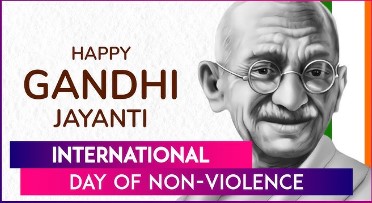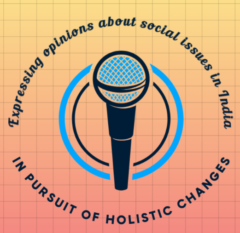
Gandhi Jayanti is celebrated every year on October 2. Importantly, it is also known as the International Day of Non-Violence. This year, in 2024, we honor the 155th birth anniversary of Mahatma Gandhi. His teachings on non-violence, truth, and social justice remain crucial today. In India, we face many challenges that require Gandhi’s wisdom. We must embrace non-violence for a better India.
The Importance of Non-Violence Today
Non-violence is more than just a principle; it is a way of life. Gandhi taught us that peaceful resistance can bring change. In recent years, we have seen protests across India. Many movements have called for justice and equality. For example, the farmers’ protests in 2020-2021 showcased non-violent resistance. Farmers peacefully protested against controversial laws. Their determination led to the repeal of those laws in 2021.
According to a survey by the Pew Research Center, 70% of Indians support peaceful protests for social change. This statistic shows that Gandhi’s teachings resonate with many people today. As we celebrate Gandhi Jayanti, we must remember this powerful legacy.
In addition, the ongoing struggles for women’s rights and caste-based discrimination highlight the need for non-violent approaches. Activists like Medha Patkar and Aruna Roy embody Gandhi’s spirit through their peaceful advocacy for marginalized communities. They remind us that non-violence is not just a tactic but a philosophy that can drive meaningful change.
Sustainable Living: A Gandhian Approach
Gandhi believed in simple living and self-sufficiency. He advocated for sustainable practices that protect our environment. Today, India faces severe environmental issues. Air pollution, water scarcity, and climate change threaten our future.
The Atma Nirbhar Bharat initiative promotes self-reliance and local production. This aligns with Gandhi’s vision of Swadeshi. By supporting local businesses and reducing waste, we can create a sustainable future. According to the Ministry of Environment, Forest and Climate Change, India aims to achieve net-zero emissions by 2070. This ambitious goal requires collective action.
Moreover, recent studies show that urban areas in India contribute significantly to pollution levels. For instance, Delhi consistently ranks among the world’s most polluted cities. Therefore, adopting Gandhian principles can guide us toward greener practices like urban gardening and community clean-up drives.
Youth Engagement: The Future of Non-Violence
The youth play a vital role in shaping India’s future. They are the torchbearers of Gandhi’s ideals. Schools and colleges celebrate Gandhi Jayanti with various activities. Students participate in debates, skits, and cleanliness drives.
A report by the National Youth Policy states that over 50% of India’s population is under 25 years old. Engaging young people in discussions about non-violence is essential. They can lead initiatives that promote peace and harmony in society.
As Mahatma Gandhi once said, “Be the change you wish to see in the world.” This quote inspires young people to take action. Initiatives like “Gandhi Global Family” encourage youth to participate in community service projects focused on social issues.
Additionally, organizations like “Youth for Peace” work towards fostering dialogue among diverse groups. Besides, they aim to build understanding among different communities through workshops and events.
Gandhi’s Influence on Global Movements
Gandhi’s philosophy has inspired global leaders and movements. Martin Luther King Jr., Nelson Mandela, and Malala Yousafzai drew from his teachings. Their struggles for justice demonstrate the power of non-violence.
In 2007, the United Nations declared October 2 as the International Day of Non-Violence. This recognition highlights Gandhi’s global impact on peace movements. Today, many countries face conflicts that require peaceful solutions. Notable among them are the conflicts between Russia and Ukraine, and the conflict between Israel and Hamas which is now snowballing and threatening the peace in West Asia. Closer home, the Manipur conflict is still showing no signs of dying down.
According to the Global Peace Index (GPI) for 2024, India ranks 144th out of 163 countries in terms of peace levels. Promoting non-violence can help improve this ranking.
Notably, Malala Yousafzai has often cited Gandhi as an influence in her fight for girls’ education worldwide. Her advocacy reflects how Gandhian principles transcend borders and inspire movements globally.
The Role of Education in Promoting Gandhian Values
Education plays a crucial role in spreading Gandhi’s message. Schools should incorporate his teachings into their curriculum. Teaching students about non-violence fosters empathy and understanding.
Recent studies show that students exposed to conflict resolution education are more likely to engage in peaceful behaviors. Programs that teach negotiation skills can reduce bullying and violence in schools.
As we celebrate Gandhi Jayanti, let us advocate for educational reforms that emphasize Gandhian values. Moreover, educational institutions can organize workshops on Gandhian philosophy and its relevance today. These workshops can empower students to become advocates for peace within their communities.
Conclusion: A Holistic Approach for a Better India
Gandhi Jayanti serves as a reminder of the enduring relevance of Mahatma Gandhi’s principles today. We must embrace non-violence as a guiding force in our lives. By promoting sustainable living practices, engaging youth, and advocating for education, we can create a better India.
We must remember that change starts with us. As individuals, we can contribute to a more peaceful society by practicing non-violence daily. Let us honor Gandhi’s legacy by committing to these values and working towards a brighter future for all. Please share your views on how Gandhian values and principles can be incorporated in society so as to bring about a holistic change in India, in terms of peace and non-violence.

Good job
Thank you, George!
Hi Ranjan! Thanks for this timely write up! Looking forward to many more from you!
Chitra
Thank you, Chitra for your support! Sure, there are lots more in the pipeline.